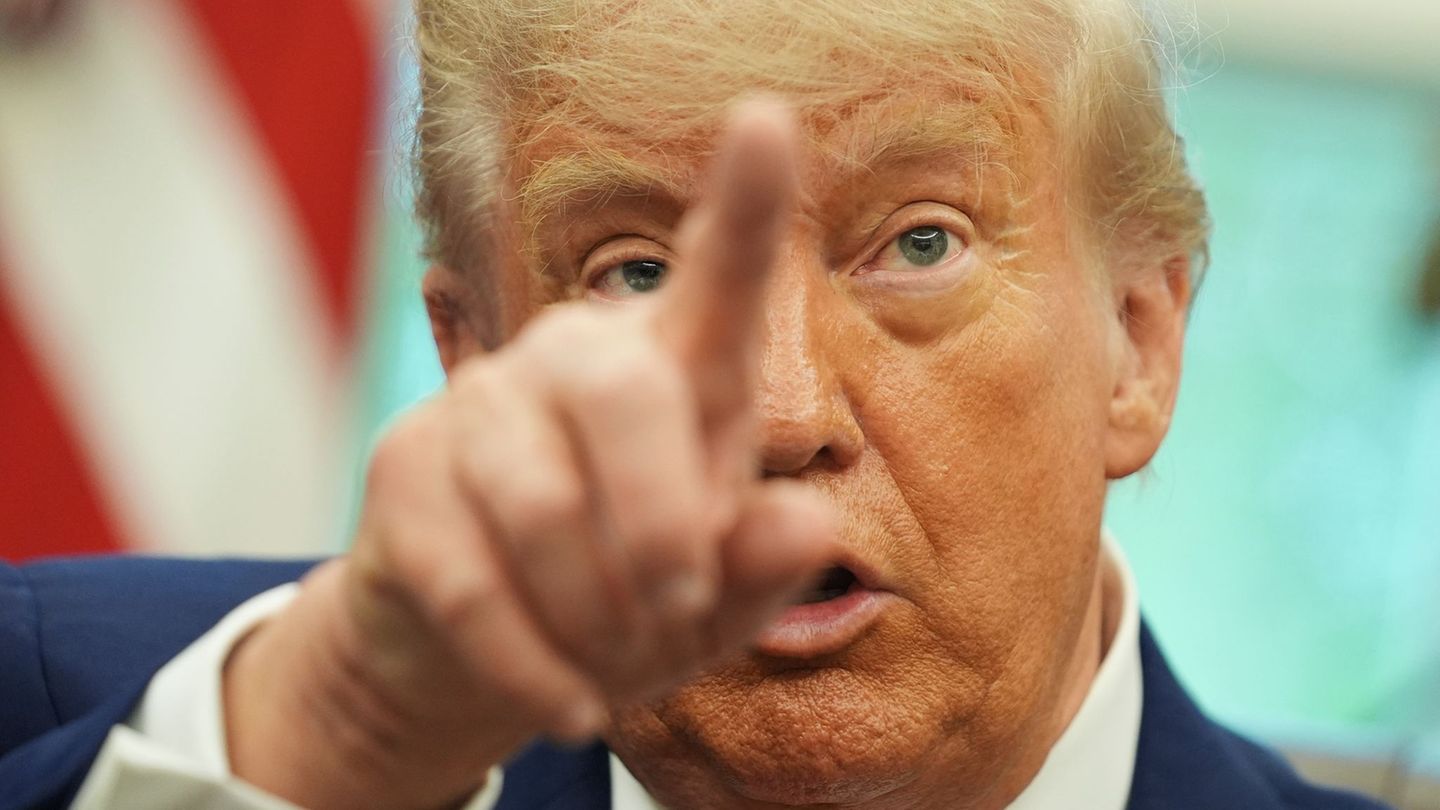It has been almost a month since the Thuringian state election. Now there are further steps towards forming a government.
The CDU, SPD and the Sahra Wagenknecht Alliance (BSW) want to enter into exploratory talks with the BSW for a possible so-called blackberry coalition. The state executive boards of the three parties have cleared the way for this. The plan is to start the exploratory talks next week, as Thuringian CDU leader Mario Voigt announced in Oberhof. The CDU wants to invite the BSW and the SPD to this event. They want to explore common ground and “what such cooperation could look like,” said Voigt.
Thuringia’s SPD leader Georg Maier said that the option talks that had taken place so far had “created an atmosphere for exploratory talks”. Now it must be checked whether there is also a common substantive basis for cooperation. They will not shirk their responsibility. “One thing is clear, however: we will not participate in any coalition that accepts changing majorities with the AfD.” That is why a parliamentary format for voting with the Left is needed.
After the state elections, in which the AfD became the strongest force in a federal state for the first time, a possible coalition of the CDU, BSW and SPD is being discussed. However, the three parties together only have 44 of the 88 seats in parliament and would be dependent on the behavior of the Left to pass laws. The term blackberry coalition is said to have been first used by party researcher Karl-Rudolf Korte in an essay. The blackberry is said to have been the eponym because the fruit, at different stages of ripeness, shows the party colors of the possible coalition partners.
No cooperation with AfD and Left
Voigt’s CDU cannot form a direct coalition with the Left Party of the current Prime Minister Bodo Ramelow because there is an incompatibility resolution for the entire CDU that prohibits Christian Democrats from structurally cooperating with the AfD and the Left Party. But cooperation with the BSW of party founder Sahra Wagenknecht is also being controversially discussed in the Union. CDU leader Friedrich Merz recently said that he considers coalitions with the Sahra Wagenknecht alliance in Thuringia or Saxony to be “very, very, very unlikely”. Toleration or other forms of cooperation are conceivable.
When asked about this, Voigt said: “We Thuringians have to determine our own path, just like the Saxons. But it is nevertheless clear to us that we will not act against the CDU’s fundamental convictions.”
Wagenknecht insists on conditions
Behind closed doors, talks between CDU, BSW and SPD representatives have been taking place in Saxony and Thuringia for weeks. It was recently an open secret that the intention was to make the start of exploratory talks public only after the Brandenburg election. Both Voigt and Saxony’s Prime Minister Michael Kretschmer also met with Wagenknecht herself in Berlin to exchange views. Not much has been revealed about the content so far.
Wagenknecht’s conditions on the subject of war and peace are the biggest obstacle. She insists that a state government with BSW participation should advocate for more diplomacy in view of the Russian war of aggression against Ukraine and against the stationing of US medium-range missiles in Germany. Not only the CDU, but also the SPD is struggling with these demands.
Source: Stern
I have been working in the news industry for over 6 years, first as a reporter and now as an editor. I have covered politics extensively, and my work has appeared in major newspapers and online news outlets around the world. In addition to my writing, I also contribute regularly to 24 Hours World.




